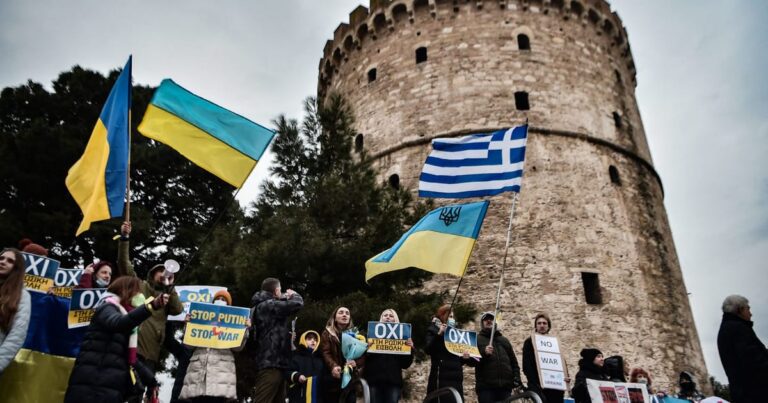A centuries-old history
The Rumeans are part of the Greek community of northern Azovia, descended from Greeks whom Russia displaced in the 18th century from Crimea to what is now eastern Ukraine.
The group, which includes around 70,000 people, is divided into the Rumeans, whose language is similar to modern Greek, and the Urums, who speak a Turkic language close to modern Crimean Tatar. The two languages are only spoken in this southeastern corner of Ukraine and were both seriously endangered before the war, with no state programs to preserve them through teaching in schools.
Khadzhynova, born in the village of Sartana, was part of a group of native speakers, researchers and activists seeking to preserve and revive the Greek languages and culture of northern Azovian.
The war has now decimated the team.
For two weeks, Khadzhynova was stuck in Mariupol under constant shelling, without electricity, water, heating and without telephone or internet connection. She cooked outside and boiled water from a nearby stream over a bonfire.
Every day, she saw the smoke rising as the missiles hit the other side of town, where her brother and two nieces live. She had no way of contacting them. His friends and other activists in Roumea and Urum were also impossible to reach, either in Mariupol or in the surrounding villages that were bombed and fell under Russian control.


